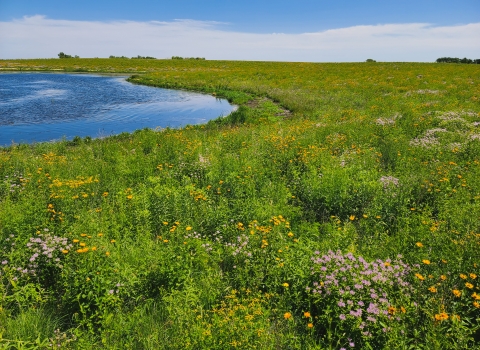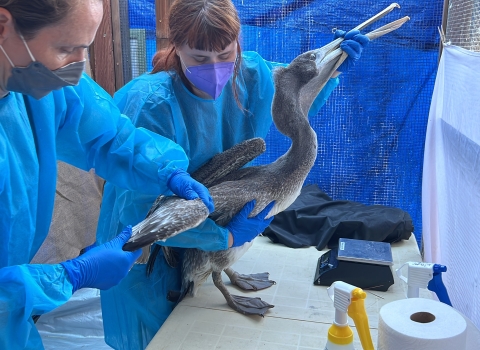The U.S. Fish and Wildlife Service (Service) is seeking public comment on a Draft Environmental Assessment (Draft EA) regarding the Utah Department of Natural Resources (UDNR) proposed “Bicknell Bottoms Land Exchange.” UDNR acquired the Bicknell Bottoms Waterfowl Management Area (WMA) with Federal grant funds through the Pittman-Robertson Wildlife Restoration Act (PR) grant program. PR regulations stipulate that the Service must approve any disposal of PR acquired property. The Service’s decision to approve the project proposal constitutes a Federal action subject to the provisions of the National Environmental Policy Act of 1969, as amended (NEPA). This Draft EA has been prepared to comply with NEPA provisions to assess potential impact on the human environment. Public comments will be accepted for a 30-day period ending April 24, 2020.
UDNR proposes to acquire high quality wetland habitat adjacent to the WMA and dispose of dry, upland habitat within the WMA that is less valuable to waterfowl. This exchange will increase hunting opportunities for the public by integrating this high quality waterfowl habitat into the WMA, and protecting it in perpetuity. The Proposed Action would not negatively impact wildlife or cultural resources. The Draft EA documents an analysis of the effects of the Proposed Action and the No Action Alternatives.
Those without internet access may request copies by calling the Services’ Wildlife and Sport Fish Restoration Program at 303-236-4414. Comments will be accepted until April 24, 2020 and should be sent to: Chief, Wildlife and Sport Fish Restoration Program, U.S. Fish and Wildlife Service, P.O. Box 25486, Denver, CO, 80225.
The mission of the U.S. Fish and Wildlife Service is working with others to conserve, protect, and enhance fish, wildlife, plants, and their habitats for the continuing benefit of the American people. For more information on our work and the people who make it happen in the West, visit our website, or connect with us through any of these social media channels: Facebook, Twitter, Flickr, YouTube, and Instagram.


